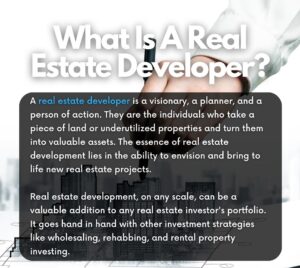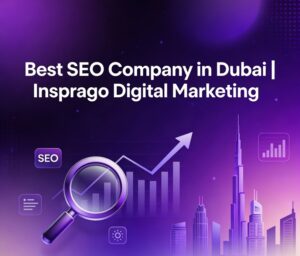Introduction: A Greener Vision for the Future

As Dubai rapidly evolves into a global urban powerhouse, sustainability has become more than just a buzzword—it’s now a strategic imperative. With climate change, resource scarcity, and population growth looming large, forward-thinking Real Estate Developers are reimagining the city’s skyline with eco-conscious principles.
In this context, it’s no longer enough to build high and fast. Developers must now build smart, sustainable, and resilient structures that meet the demands of both environmental responsibility and modern luxury.
Why Sustainability Matters More Than Ever
To begin with, Dubai’s commitment to sustainability is rooted in national goals such as the UAE Net Zero 2050 initiative and the Dubai Clean Energy Strategy 2050. These frameworks push developers to align with eco-conscious standards.
Moreover, increasing awareness among residents and investors has created a surge in demand for sustainable living options. This shift in preference, therefore, puts additional pressure on developers to innovate and reduce their environmental footprint.
Key reasons driving this transformation:
-
Escalating energy costs have made efficiency a financial necessity.
-
Government regulations mandate green building compliance.
-
Consumer awareness is steering markets toward responsible living.
-
International competition pushes Dubai to lead by example.
As a result, sustainability is not just a nice-to-have—it’s become a cornerstone of competitive success.
Smart Designs, Greener Outcomes
Fortunately, many Real Estate Developers in Dubai are embracing intelligent design philosophies that go beyond aesthetic appeal. These include solar integration, passive cooling systems, and water recycling technologies.
By leveraging these innovations, developers can:
-
Cut down on long-term utility costs
-
Improve indoor air quality and occupant health
-
Increase property values and tenant satisfaction
-
Reduce the overall carbon footprint
For instance, new residential communities in Dubai are increasingly incorporating rooftop gardens, shaded walkways, and reflective roofing. Such features not only reduce heat absorption but also promote a cooler microclimate.
Material Innovation and Waste Reduction
In addition to smart design, material choice plays a pivotal role in sustainability. Today’s developers are choosing low-impact, recyclable, and locally sourced materials that minimize environmental harm while maintaining durability and aesthetic appeal.
Furthermore, many construction sites are adopting prefabricated components and modular building systems, which significantly reduce onsite waste and speed up timelines.
Notable shifts in material and construction practices include:
-
Use of sustainable timber, recycled steel, and low-VOC paints
-
On-site waste separation to improve recycling rates
-
Digital modeling tools to reduce design errors and material overuse
-
Water-saving plumbing systems and drought-tolerant landscaping
Through these efforts, Real Estate Developers are setting new benchmarks in resource efficiency and operational sustainability.
Technology: The Backbone of Green Development
Additionally, technology is playing a transformative role in Dubai’s green real estate sector. Through automation, data analytics, and IoT (Internet of Things), smart buildings now optimize energy use in real time.
Examples of technology in action:
-
Smart thermostats adjust room temperature based on occupancy.
-
Motion sensors ensure lighting is only used when needed.
-
Water leak detection systems prevent waste and damage.
-
Digital twins simulate energy consumption before a building is even constructed.
By integrating these tools, developers ensure continuous optimization, making sustainability a dynamic, ongoing process rather than a one-time checkbox.
Community and Lifestyle Benefits
Beyond infrastructure and technology, sustainable real estate also enhances quality of life. Communities designed with walkability, greenery, and open spaces naturally foster healthier, more connected lifestyles.
For this reason, Real Estate Developers are no longer just selling homes—they’re curating holistic living experiences. Green parks, jogging trails, bicycle lanes, and community farms are all becoming standard features in Dubai’s new residential projects.
These benefits ripple outward, leading to:
-
Reduced vehicle use and lower emissions
-
Stronger community ties and mental well-being
-
Opportunities for urban farming and self-sufficiency
-
Encouragement of eco-conscious habits in daily life
The move toward sustainability is not just technical—it’s also deeply human.
Dubai’s Policy Push: A Driving Force
Equally important is the role of government policy in accelerating this green movement. Regulatory bodies like the Dubai Municipality and the Dubai Supreme Council of Energy have laid out rigorous standards that developers must follow.
One notable initiative is the Dubai Green Building Regulations and Specifications, which encourage energy-efficient design, renewable energy adoption, and waste reduction. Moreover, tax incentives and expedited permit processes reward developers who prioritize sustainability.
The introduction of smart city frameworks and master plans is steering entire districts, such as Dubai South and Expo City, toward becoming hubs of green innovation. It’s no surprise that Real Estate Developers are aligning with these blueprints to future-proof their investments.
The Rise of Green Certification
Furthermore, gaining green certifications such as LEED (Leadership in Energy and Environmental Design), WELL, and Estidama has become a badge of honor among Dubai’s developers. These certifications not only prove a commitment to sustainability but also increase market appeal, especially among environmentally conscious investors and expatriates.
Green buildings Dubai, therefore, are no longer niche—they’re becoming the new norm.
With these credentials, properties often:
-
Command higher rental yields
-
Attract long-term tenants
-
Demonstrate regulatory compliance
-
Offer better resale value
As the market matures, these green credentials are likely to become minimum expectations rather than optional distinctions.
Looking Ahead: What’s Next for Dubai’s Developers?
As we look to the future, the momentum toward sustainability is only expected to grow stronger. From vertical farming on high-rise rooftops to carbon-neutral developments, Real Estate Developers are exploring bold, innovative ideas that will define Dubai’s future landscape.
Emerging trends to watch:
-
Carbon capture materials that clean the air
-
Zero-energy buildings powered entirely by renewables
-
Artificial intelligence for predictive maintenance
-
Community-driven sustainability apps for residents
Therefore, the industry must remain agile and forward-looking to stay ahead in the sustainability curve.
Conclusion: Building a Sustainable Legacy
In conclusion, the wave of green transformation sweeping across Dubai is reshaping how buildings are conceived, constructed, and inhabited. Today’s Real Estate Developers are not just constructing buildings—they are building a legacy of responsibility, innovation, and resilience.
And as environmental expectations continue to evolve, their commitment to sustainability will not only meet market demands—it will inspire global best practices.
Most importantly, the movement toward eco-friendly construction UAE reflects a deeper, long-term vision for a greener, smarter future that balances luxury with responsibility.



















